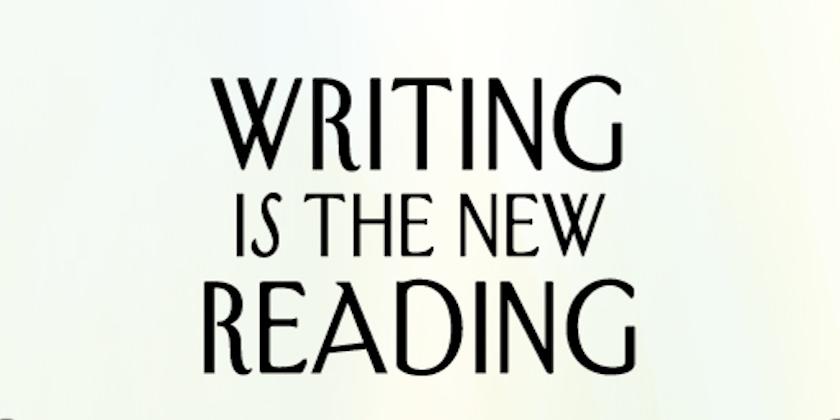AI-produced words cannot convince readers to take action – a statement as such would have been agreeable had AI writing tools not evolved as much as they have in the past few years. We already have AI reporters, AI artists, and AI novelists. Will it get harder to distinguish between AI-generated and human-inked poetry in the future? And will it happen because readers shall have shed their need for human connection and lost their eye for hamartia in writings by then? Could we even continue to call those words ‘Writings’ or shall we just stick with ‘content’? Such questions sit at the same table as ‘speculative fiction’ today because AI can write fiction and good ones. Margaret Atwood defines speculative fiction as literature that explores all kinds of dormant possibilities in society and universes induced by organic thinking. So is AI colonizing academia? Perhaps not yet, because AI writing is still detectable and can be controlled. However, the art of reading becomes the true antithesis of AI writing.

We’re at an age where every literate person reads at all times whether it’s instructions or subtitles. Although judging by the amount of time we want to allot to reading, our generation might as well be deemed impatient. The industry took ‘less is more’ too seriously and killed ‘slow & steady wins the race’. Only by allowing yourself to sit with what you read can nourish your ego and educate your prejudices. Impact mechanics work best when you bang your head against the wall not while reading a philosophical theory. Reading is undoubtedly a performative experience. Adding the last couplet to a sonnet is as satisfactory to a poet as imbuing one’s heart with those lines to a reader is.
The Future of AI Writing
Spotless writing generates a perfect definition of ‘hamartia’ but can barely manage to be flawed enough to form a bond between the reader and the protagonist. The unpredictability of human writing and the room for ambiguity left behind by human errors allow readers to connect & open the door to deep thinking. For example, the folklores, legends, myths, and religious texts are rife with enticing literary elements that invoke critical analysis, speculation & the human connection as it makes or breaks communities. Whatever information or emotion a reader receives through words takes a while longer to dissolve into our thought-stream contrary to the popular shallow reading. Now with ‘shallow reading’ you can not only diminish deep thinking and analytical skills but also lose your power of concentration and emotive cognition. Your TL is infested with unsolicited enlightenment, half-truths, spoon-fed misinformation and on a weak positive note, quick details – all of this at your fingertips via numerous AI writing tools, apps, and websites available for free. While an AI-generated script of ‘Romeo & Juliet’ in oversimplified English might serve the purpose of telling the story but can it be called story-telling? Without relating, comparing, analyzing, recreating, and vicariously experiencing the nuances of the text offered to you by the author how could the act of reading be complete…
There must be a reason behind the sudden surge of AI writing tools in the market. As an undeniably comforting companion to digital written-content creators, AI makes content marketing compact with enhanced information accessibility, accurate keywords, and ascertaining algorithmic compatibility. Come to think of it, human and AI content writers are the same when it comes to content research except we’re slower at the mass production of words. But in choosing search engine-optimized readability over relatability, the readers are missing out on the performative experience of consuming literature originally suffused with phonics & feelings and practising the art of reading. AI-produced content deprives readers of the personal rituals of reading. It fails to intrigue curiosity and nudge further creative possibilities thereby rendering the knowledge relatively unproductive. Readers may never detect any semantic error in AI-generated content, and nor will they find life. Reading is not simply an act of imbibing information but a metaphysical interactive process between minds. AI writing tools are mostly used in healthcare, education, and marketing to manufacture tons of relevant content with impeccable grammar, and short sentences absolutely devoid of passive voice to get the perfect SEO score in seconds. To say the least, it would be disappointing to read AI-generated fan-fictions in case Mary Shelley’s predictions come true.
AI is perfect for populating consumers’ timelines. It so appears that there’s hardly any battle between creativity and capitalism in the domain of intelligence. The need for speed seems to be engulfing slow analysis and manipulating the culture of literature. AI incorporated in workflows has certainly improved their creative sector but human-generated art is indelible. Overcrowding of AI-generated content could bring about a drought of dissatisfactory reading experiences thereby going back to basics – sustainability of organic readership. As a reader, I’ll always be curious to know the whats, hows, whos, and whys of a book in relation to the author. Without the writer’s thoughts acceding to or challenging my own, my reading performance doesn’t get a climax. Though AI as writing support is a win for the content factories, AI taking over the algorithm of literary evolution is highly unlikely. Motion pictures didn’t kill books, restaurants didn’t supplant home kitchens, auto-tune couldn’t take over vocal skills, and similarly, AI writing might never overpower organic literature. Historically, every literary era or canon has had a distinctive linguistic style, a scholarly trend, and a remarkable cultural aura except in the current times. AI writing would either give rise to a peculiar style of writing exclusively for this century or become a topic of heavy scrutiny among scholars because the readers are still flesh & blood.
Essay/Article commissioned by: TDLM Editorial
Written by: Ipshita Chakraborty
[Digital Innovation; Jadavpur University; Lady Brabourne College, Kolkata; English Literature]
Graphics/Art/Illustration by: TDLM Design Team
‘Reading is the Antithesis of AI writing’ First Published in The Daily Life Magazine on February 17, 2023











 Report This
Report This
Leave a Reply
You must be logged in to post a comment.